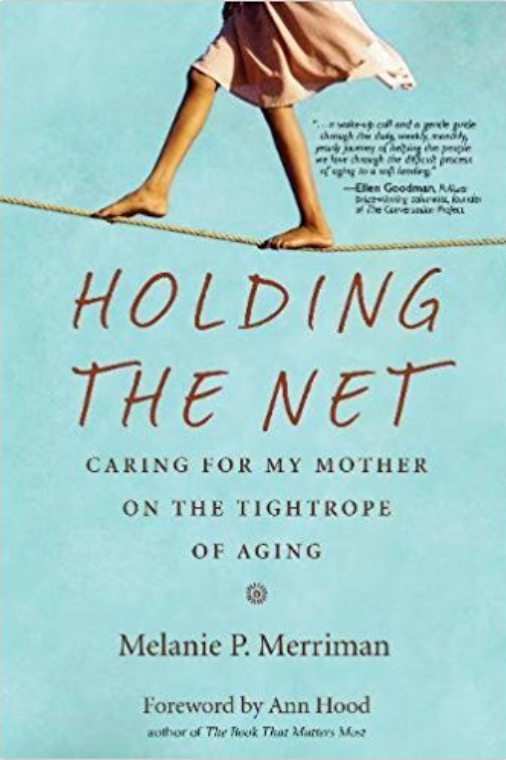By Karen Collazo
The day I first heard Tina’s story was the day I learned the true meaning of hope and courage. Tina embodied the drug addict stereotype and while I initially felt that we may not be able to share anything in common, I was mostly terrified about exposing myself as someone who was undeserving of her own pain. In her sunken and dull eyes, you could see the years of abuse, hurt and heartache. Before she uttered her first word, I could tell that my story would pale in comparison. In that small community of women who were seeking redemption, we were true polar opposites.
Tina’s looks betrayed her youth. She had saggy alabaster skin and black shoulder-length hair. She was missing teeth and always wore a pair of washed-out ripped blue jeans and a simple t-shirt. And when she spoke, a southern regional twang came out that stretched the a's and added r's to words that had no business ending in r. She was rough around the edges; a don’t-take-shit-from-no-one bitch, with the aching heart of a lost little girl. She was lovely, as lovely as they come.
Tina had been molested as a child. Along with her siblings, she had been held captive in a dog cage and was only allowed inside the house when it was time for her father to throw himself on her. To make some extra cash, he rented her and her siblings out to the local men. She was a fighter, she said. But even if she hadn’t mentioned it while telling the story, I knew right away. I pictured her kicking and screaming and scratching the skin of whatever grotesque man was punishing her with his dick. She was probably loud too. Demanding that they stop and trying to run away until it was over. So because she was a fighter, Tina’s dad started injecting her with heroin. The heroin calmed her down and took her far away. It gave the men the ability to do what they pleased without walking away injured by the clawing of a six-year-old.
When she was ten, she ran away from home. She found a tiny hidden nook in the top corner of an overpass, under a quiet highway. There, she slept, ate, urinated and defecated for one year, while dreaming of a better life. An older gentleman from the neighborhood, who walked past her secret hiding place on a daily basis, noticed her and began to bring her food. Every day, the man would leave a bag on the sidewalk, without uttering a single word. At first, she’d wait for the man to leave before climbing down from her spot to retrieve the food. But soon, she mustered up the courage to wait for the man out in the open and eventually they began to talk. He took to the spunky ten year-old and invited her to live with him.
With nowhere else to go, Tina accepted and soon after found herself working for the man. He was a local dope dealer, but treated her with respect and loved her like a daughter. At ten years old, Tina finally experienced love thanks to heroin. She dealt dope for him for eight years. At nineteen, she decides to move to Arizona to start her own business. Dealing dope like a redneck gangster in the dry desert, she quickly rose to the top of her game. She grew her empire and bought a house with cash. Then, a man came along. He noticed this young girl with tricks up her sleeve and decided that he wanted in.
One evening, as she approaches her house, she receives a powerful blow to the head and gets knocked unconscious on her front door step. Hours later, when Tina finally comes to, she finds a strange man in her home rummaging through her belongings. Tina does what she knows best and puts up a fight. A neighbor who hears the ruckus calls the police. When the police arrive, the man claims to be Tina’s husband and insists that the noise was just the two of them having a marital dispute. Tina pleads with the officer. She tells him that this man is a stranger and that he had forced himself into her home. She wants him arrested. But it was the 1980’s and there weren’t very many laws protecting women from domestic violence. The cop, convinced that these two were just having a quarrel, eventually leaves the scene and Tina’s captor beats and rapes her until the sun comes up and she could no longer move a muscle.
The very next day, he binds her arms and legs with a metal chain and moves in. For years, she is held prisoner in the home she had worked so hard to buy. He takes her dreams and meager success and squashes them like a tiny insignificant bug. He terrorizes her, keeps her doped up and never allows her to go outside. She has six rape babies – all of them born addicted to heroin. Two of them die at birth. The one’s that survive don’t feel like anyone’s babies; Tina certainly didn’t see them as her own. They were just these things that cried and pooped all day. They distracted her when she was lonely and were a nuisance when she was high.
Then one day her youngest son comes crying to her. He tells her that his butt hurts. Suddenly, Tina’s maternal instincts kick in. Her blood boils at the thought of this innocent child suffering the same way she once did and decides it’s time to run away again. Over the next few weeks, she studies her abuser’s movements and patterns, and carves out an escape plan. She puts on the best act, follows all the rules and is on her best behavior so that he begins to let his guard down. One afternoon, he leaves to go sell dope and forgets to lock the front gate. When she is sure he has left, she grabs all the kids and runs over to a neighbor’s house for help. She makes it out of town with only the clothes on her back and a few days later finds herself back to where she grew up.
By then, her parents were both dead and most of her siblings had moved away – except for one brother. Living nearby, she tries to start a new life by pan-handling and prostituting herself and contracts HIV. Her children grow to become juvenile delinquents and follow in mom’s footsteps: stealing, dealing and committing crimes. One daughter is incarcerated for murder, while the other struggles with drug addiction. After years of being attacked by the hand she had been dealt, Tina decides it’s finally time to get clean. In her 50’s, afraid but still determined, she found herself at The Orchid.
Each chapter of Tina’s story started and ended with running. It reminded me of my running. We both had very different reasons for why we ran, but we shared one thing in common; we both had a light inside that so many circumstances could have blown out. And yet, through it all we found ways to keep the light aflame. We moved forward. We continued to hope that something better was about to come. Tina’s story taught me that there is always room in your heart to believe and try. If she could do it, so could I. I finally grew the courage to put my truth down on paper and tell it for the first time.














